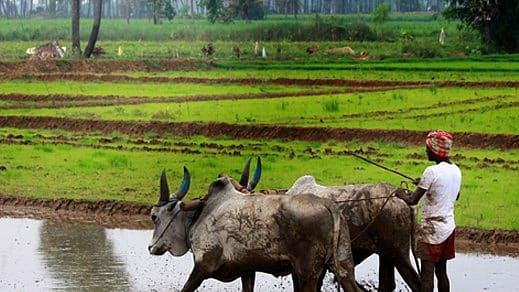Interim Budget 2019: Last-ditch effort to woo rural voters
ADVERTISEMENT

It is never a good thing to be overconfident, and especially not in Indian politics. At the beginning of December 2018, less than six months before the 2019 Lok Sabha general elections, it appeared that there was no credible opposition to the formidable clout of Prime Minister Narendra Modi and the Bharatiya Janata Party.
But after victories in three key Hindi heartland states of Chhattisgarh, Madhya Pradesh and Rajasthan, Rahul Gandhi-led Indian National Congress came roaring back into the mainstream of Indian politics.
The Interim Budget 2019 presented by the interim finance minister Piyush Goyal on Friday shows that even the government has been shaken by the change in the political narrative in the country. With a proposal to spend more than ₹75,000 crore a year to give small and marginal farmers ₹6,000 annually as guaranteed income and many other sops, the Modi government wants to make it clear that farmers have not been forgotten.
It is a clear counter to the poll bugle sounded by Gandhi on December 11, 2018, who said after the victories in the state polls that a core issue for the 2019 general elections will be the welfare of farmers.
“There are a couple central issues. Issue number one is how India is going to give jobs to its youngsters. Issue number two is how India is going to ensure that farmers have a future in this country and how agriculture fits into the larger economic vision of the country,” Gandhi had said.
While the nebulous issue of jobs was addressed by Goyal in his Budget speech, which kept referring to the jobs created in various sectors, the big sign of the government’s nervousness about rising farm distress was the outlay on schemes for the farmers.
Though Goyal had plenty to refer to in terms of what had been done for the middle class over the past four years, he could only point to the increase of minimum support price for 22 crops as the measure taken to double the income of farmers. When Modi came to power, the government had proclaimed that by 2022, incomes of Indian farmers will double; and in 2019, the target is far from being achieved.
Instead of structural reforms to improve the agriculture sector, the government has instead chosen to take the route of putting cash directly into the bank accounts of the farmers. By all accounts it is a desperate move, similar to the direct benefit transfer of cash announced by a weak United Progressive Alliance II government in 2013.
Under the Pradhan Mantri Kisan Samman Nidhi or PM-KISAN scheme, the government will give Rs 6,000 annually to small and marginal farmers with landholdings of less than two hectares. “This income support will be transferred directly into the bank accounts of beneficiary farmers, in three equal instalments of ₹2,000 each. This programme will be funded by Government of India. Around 12 crore [120 million] small and marginal farmer families are expected to benefit from this,” Goyal said in the Lok Sabha.
The scheme will be effective from December 1, 2018, and the first installment will be paid by March 2019. The programme requires an annual outlay of Rs 75,000 crore—nearly as high as India targets to garner from disinvestment in public sector companies. For fiscal year 2018-19 alone, Goyal has provided for ₹20,000 crore for the PM-KISAN scheme.
But that is not all. With less than three months to go for the 2019 general elections, wooing the farmers has become a priority. Crop loans to farmers have increased to ₹11.68 lakh crore in 2018-19. Natural calamities can create havoc when farmers need to repay these loans. For this, Goyal announced an interest subvention scheme. Not only will farmers get an interest subvention of 2% for the first year of the rescheduled loan, as is applicable currently, but the benefit will continue for the entire tenure of the loan. A further 3% interest subvention will be provided for the entire tenure of the loan if the repayment is timely.
Smaller sops include extension of the 2% interest subvention to farmers pursuing activities in animal husbandry and fisheries, when such farmers avail of loans through the Kisan Credit Card. Further, ₹750 crore has been allocated for the Rashtriya Gokul Mission—for the welfare of cows—while a separate Department of Fisheries will also be created.
Meanwhile, the opposition has already found their points of attack. “This was not an Interim Budget. It was a full-fledged Budget speech accompanied by an election campaign speech. By doing so, the government has trampled on time-honoured conventions. A government confident of coming back to power would have honoured these conventions,” said Congress leader and former finance minister P Chidambaram.
He said that the government had further weakened fiscal stability by missing the fiscal deficit target. “The government’s desperation is proved by its announcement of the farmers’ income support scheme. The fiscal deficit numbers are telling. By recklessly breaching fiscal discipline, the government will fund the scheme this year entirely out of borrowed money of ₹Rs 20,000 crore and next year the entire sum of ₹75,000 crore will be from borrowed money,” Chidambaram said.
The big question at the end of the day is whether the government has done too little too late to win back the farmers. That question will be answered later this year.